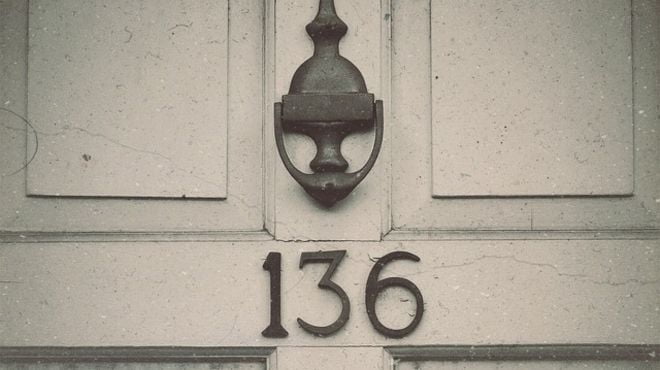Dreaming of a lost dog carries significant symbolism in dreams. Interpretations suggest that this vision might herald the return of something once lost, similar to rediscovering a cherished possession.
However, this dream also serves as a subtle warning, urging you to confront unresolved emotions and heal old wounds to prevent future issues. Let’s dive deep into the exploration of this dream scenario including real-life experiences.
| Key Points | Summary |
|---|---|
| 1. Fear and Insecurity | Dreaming of a lost dog signifies deep-seated fears and insecurities, urging individuals to confront these emotions and build resilience. |
| 2. Loyalty and Betrayal | The lost dog symbolizes trust and fidelity, highlighting fears of betrayal or past betrayals. |
| 3. Transition and Change | Lost dog dreams indicate imminent life changes, urging adaptability and courage during transitions. |
| 4. Longing for Companionship | Reflecting a yearning for emotional connections, these dreams underscore the importance of meaningful relationships and fostering connections. |
| 5. Self-Reflection and Opportunities | Metaphorically representing unexplored potentials, these dreams encourage self-reflection and embracing unexplored paths for fulfilling choices. |
Cultural Significance of Dreaming of a Lost Dog: A Global Perspective
1. Native American Cultures:
In Native American traditions, dogs are revered as spiritual guides and symbols of loyalty. Dreaming of a lost dog might be viewed as a message from the spirit world, emphasizing the importance of connections and spiritual guidance.
2. Chinese Culture:
Chinese folklore portrays dogs as guardians of loyalty and fortune. Dreaming of a lost dog in Chinese culture symbolizes the fear of losing valuable relationships or opportunities. It may signify a need for protection and security.
3. Islamic Traditions:
While dogs are often perceived differently in Islamic traditions, dreaming of a lost dog might represent spiritual disconnection or vulnerability. It could symbolize a longing for guidance and security during challenging times.
4. Greek Mythology:
Greek mythology intertwines dogs with deities and the afterlife. Dreaming of a lost dog in this context may symbolize a spiritual journey or the desire for companionship and protection in unknown realms.
5. Modern Interpretations:
In contemporary dream analysis, a lost dog often represents emotional vulnerabilities and insecurities. Such dreams may reflect concerns about trust, loyalty, and fear of abandonment, offering insights into the dreamer’s subconscious anxieties.
Decoding the Meanings Behind Seeing a Lost Dog

1. Fear and Insecurity:
Dreaming of a lost dog often signifies deep-rooted fears and insecurities in various aspects of life such as relationships, career, or personal achievements. The lost dog becomes a symbol representing apprehensions about losing someone or something significant, inviting you to confront these fears and build resilience in the face of uncertainty.
2. Loyalty and Betrayal:
A lost dog in dreams can manifest subconscious thoughts about trust and loyalty. It symbolizes trust and fidelity, revealing fears of betrayal or the lingering effects of past betrayals. This dream serves as a reminder to evaluate trustworthiness and address lingering feelings of betrayal affecting current relationships.
3. Transition and Change:
Dreams featuring lost dogs often point to imminent life changes like moving, career shifts, or relationship phases. The lost dog embodies uncertainty, urging you to adapt with courage. Embrace the unknown, emphasizing flexibility and
resilience during new life chapters.
4. Longing for Companionship:
Dreams of a lost dog symbolize a deep yearning for emotional connections and companionship. Reflecting feelings of loneliness in waking life, this dream underscores the importance of meaningful relationships, encouraging reaching out and fostering connections for joy and fulfillment.
5. Self-Reflection and Lost Opportunities:
Lost dog dreams metaphorically represent missed opportunities or unexplored potentials. Encouraging self-reflection, these dreams prompt examination of past decisions and actions. They guide you towards embracing unexplored paths and talents for fulfilling life choices.
Decoding Different Lost Dog Dream Scenarios: Understanding the Symbolism
1. Finding a Lost Dog:
Discovering a lost dog in a dream signifies unexpected help or guidance. It might represent a new friendship, a mentor, or a solution to a problem you’re currently facing. This dream scenario suggests that assistance is on the horizon, often in ways you least expect.
2. Comforting a Lost Dog:
If you dream of comforting a lost dog, it reflects your empathetic nature. This scenario signifies your desire to nurture and heal, not only in your personal relationships but also within yourself. It may indicate a need to extend compassion to others in your waking life.
3. Adopting a Lost Dog:
Adopting a lost dog in your dream symbolizes new beginnings and loyalty. This scenario represents a positive change, such as embarking on a new relationship or starting a creative project. The dog signifies loyalty, reflecting the faithfulness of the connections you’re about to establish.
4. Searching for a Lost Dog:
Dreams where you search for a lost dog reflect inner introspection and self-discovery. This scenario suggests that you’re in pursuit of something valuable within yourself, perhaps a deeper understanding of your emotions or a quest for personal fulfillment.
5. Losing a Dog:
Conversely, losing a dog in a dream often mirrors feelings of insecurity or fear of losing something precious in your waking life. This scenario might be an expression of anxiety about losing a valued relationship, job, or a sense of security. It’s a call to address these insecurities and build emotional resilience.
6. Returning a Lost Dog to Its Owner:
Returning a lost dog to its owner in a dream signifies resolution and reconciliation. This scenario represents resolving conflicts, mending broken relationships, or finding closure in situations that have been troubling you. It embodies the act of making amends and finding peace.
7. Being Ignored by a Lost Dog:
A lost dog in your dream may have ignored you, which may reflect neglect or emotional distance in your real life. This scenario reflects a need for validation and attention. It might be an indication to address message issues or seek support from those around you.

Lost Dog Dreams: Navigating Realities and Debunking Myths
1. Myth of Bad Omens:
Certain cultures associate dreams of lost dogs with bad omens, signifying impending misfortune or danger. This belief, however, lacks scientific basis. Dreams are intricate reflections of personal emotions and experiences, not prophetic warnings. Dismissing the myth of bad omens allows for a more rational and empowering interpretation of lost dog
dreams.
2. Superstition of Evil Spirits:
Some superstitions link lost dogs in dreams to the presence of evil spirits or negative energy. Modern psychology views these dreams as manifestations of subconscious thoughts and emotions, devoid of supernatural elements. Understanding dreams from a psychological perspective dispels unfounded fears and fosters a more realistic understanding.
3. Reality of Emotional Symbolism:
Lost dog dreams primarily symbolize emotions such as insecurity, fear, or a desire for companionship. These dreams often represent the fear of losing a valuable relationship or the need for emotional support. Interpreting these symbols within the context of personal life experiences provides genuine insights into the dream’s significance.
4. Impact of Cultural Influences:
Cultural beliefs significantly shape dream interpretations. While some cultures view lost dog dreams negatively, others see them positively, symbolizing loyalty or new beginnings. Being mindful of cultural biases helps individuals discern between genuine interpretations and traditional beliefs, fostering a nuanced understanding.
5. Role of Personal Experiences:
Personal memories and experiences profoundly influence dream imagery. For someone who has lost a beloved pet, dreaming of a lost dog might evoke deep emotions and a sense of loss. These individual associations deeply impact dream interpretations, underscoring the importance of considering personal context.
Conclusion: Embracing the Symbolism
Dreams, like enigmatic canvases, paint vivid pictures of our innermost thoughts and emotions. A lost dog dream, with its multifaceted symbolism, prompts us to introspect, acknowledge our fears, and embrace the winds of change.
So, the next time you find yourself wandering through the labyrinth of dreams and stumble upon a lost dog, remember, it’s not just a dream—it’s a profound whisper from your subconscious, urging you to listen and learn.
As we unravel the mysteries of our dreams, we unveil the depths of our own psyche, reminding us that every dream, no matter how puzzling, holds a key to self-discovery. Embrace the symbolism, dear dreamer, and let the lost dog guide you towards a deeper understanding of your own heart.







